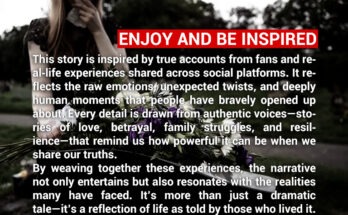For years, I sent money to my sister every month to help with her kids. It started small—diapers, school supplies—but grew into a regular expectation. She’d call, say she was short on rent or groceries, and I’d wire the cash. I love my nieces and nephews, but I’m not their parent. I finally hit a breaking point when she asked for help funding a vacation. I told her I couldn’t keep doing this. She called me selfish. But I wasn’t being selfish—I was setting boundaries. I realized I’d become her financial safety net, and it was draining me emotionally and financially.
She didn’t take it well. She accused me of abandoning her kids, said I was turning my back on family. I reminded her that I have my own bills, my own future to plan for. I wasn’t refusing to help—I was refusing to be her monthly solution. I offered to help her budget, find resources, even babysit to save costs. But she didn’t want solutions—she wanted money. That’s when I knew this wasn’t about the kids. It was about her refusal to take responsibility. And I couldn’t carry that weight anymore.
My parents got involved, urging me to reconsider. “She’s struggling,” they said. I asked, “And I’m not?” I work full-time, live modestly, and save carefully. I wasn’t hoarding wealth—I was protecting stability. I explained that enabling her wasn’t helping her grow. It was keeping her stuck. They didn’t agree, but they backed off. I felt guilty, but also relieved. For the first time, I was choosing myself. And that choice came with peace I hadn’t felt in years.
Weeks passed. My sister stopped calling. I missed the kids, but I stood firm. I sent birthday cards, offered to visit, but kept my wallet closed. Eventually, she reached out—not to ask for money, but to talk. She’d started working part-time, joined a parenting group, and was learning to manage on her own. She didn’t thank me, but I saw the shift. She was growing. And maybe, just maybe, my refusal had planted that seed. I wasn’t the villain—I was the boundary she needed.
Now, our relationship is cautious but improving. I help occasionally—within limits. I’m no longer the emergency fund. I’m the aunt who shows up with love, not cash. And that’s enough. My sister is learning, and so am I. I’ve learned that love doesn’t mean endless sacrifice. It means knowing when to say no, and trusting that people can rise when they’re no longer being carried. It’s not easy—but it’s necessary.
So yes, I refused to support my sister’s kids every month. And it changed everything. Not because I stopped caring—but because I started caring for myself, too.


